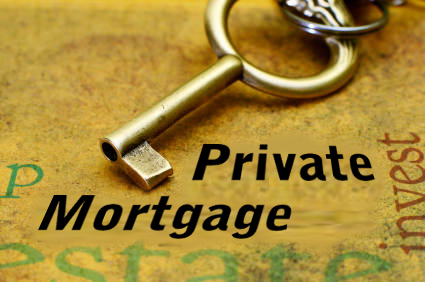How It Functions: A Comprehensive Guide to Mortgage Lending for First-Time Customers
Navigating the world of mortgage lending can be intimidating for novice buyers. Comprehending the essential components like principal, interest, and deposits is crucial. Additionally, acknowledging the different types of mortgage and the application process can substantially affect one's experience. By exploring key aspects that affect rates of interest, customers might discover beneficial insights. What else should they consider prior to making such a significant financial commitment?
Recognizing Mortgage Basics
When new customers go into the domain name of homeownership, understanding mortgage fundamentals comes to be vital for making notified choices. A mortgage is fundamentally a car loan secured by the building being bought, enabling individuals to buy a home without paying the complete cost upfront. Buyers have to understand crucial components, consisting of principal, interest, tax obligations, and insurance, frequently summed up as PITI. The principal is the quantity borrowed, while rate of interest is the cost of borrowing that amount, expressed as a percentage. Tax obligations and insurance policy are added prices that can significantly influence monthly payments. Buyers need to also take into consideration the funding term, normally 15 or thirty years, which influences payment amounts and total interest paid. Comprehending credit score ratings is important, as they influence financing qualification and rates of interest. Comprehending these essential ideas equips newbie buyers to navigate the mortgage landscape confidently and choose that straighten with their economic objectives.
Types of Mortgage Loan
When thinking about mortgage options, novice customers usually experience 2 primary types: fixed-rate and variable-rate mortgages. Fixed-rate home mortgages use stability with consistent payments over the loan's term, while variable-rate mortgages can supply lower first rates that may fluctuate gradually. Understanding these differences is important for making an educated decision.
Fixed-Rate Home loans
Fixed-rate home mortgages provide stability and predictability for new buyers navigating the intricacies of home financing. With a fixed-rate mortgage, the rate of interest remains consistent throughout the loan term, typically varying from 15 to thirty years. This consistent rate allows buyers to plan their budget plans properly, knowing that their regular monthly settlements will certainly not fluctuate. First-time buyers gain from this structure as it gets rid of uncertainty in long-lasting monetary dedications. In addition, fixed-rate home loans frequently come with lower initial rates compared to adjustable-rate options, making them an appealing selection for those looking to establish home equity over time. Overall, fixed-rate mortgages use a straightforward path to homeownership, perfect for individuals seeking long-lasting financial safety.
Adjustable-Rate Mortgages
For new buyers seeking adaptability, adjustable-rate mortgages (ARMs) can supply an attractive option to fixed-rate fundings. ARMs usually use lower first rates of interest, making regular monthly repayments extra budget-friendly in the very early years. These prices vary after an initial fixed period, which can lead to boosted payments over time. Borrowers should comprehend the index and margin that identify future price adjustments. Frequently, ARMs have change durations of one, 3, or five years, with regular caps to limit just how much prices can enhance at each adjustment. While ARMs can be beneficial for those planning to offer or re-finance prior to the rate changes, they likewise lug threats if market problems transform substantially. Complete research study is essential for informed decision-making.
The Mortgage Application Process

Secret Aspects Affecting Rates Of Interest

Deposits and Closing Costs
Comprehending deposits and closing expenses is essential for first-time property buyers, as these expenses significantly impact the total price of a home mortgage. A down repayment is the preliminary amount paid towards the home's acquisition price, normally shared as a percent. It can range from as low as 3% to 20% or even more, relying on the funding kind and lender requirements. A bigger down payment can minimize monthly mortgage payments basics and get rid of private mortgage insurance (PMI), which protects lenders in situation of default.Closing expenses, on the other hand, include various costs sustained throughout the home-buying process. These might consist of finance origination costs, evaluation costs, title insurance coverage, and lawyer fees, typically completing 2% to 5% of the home's acquisition rate. First-time customers must budget plan for both down repayments and shutting prices to ensure they can secure their mortgage and efficiently browse the home-buying process.
Tips for First-Time Homebuyers
What crucial tips can new homebuyers comply with to navigate the typically tough process of buying a home? Initially, establishing a realistic budget plan is important. Customers must evaluate their financial situation, including income, costs, and possible mortgage repayments. Next off, acquiring pre-approval for a home mortgage can offer clearness on what one can afford and strengthen their setting when making an offer.Researching areas is similarly important; purchasers should think about factors such as features, schools, and future advancements. In addition, it is suggested to collaborate with a qualified realty agent that can offer useful understandings and assistance throughout the buying process.Home inspections ought to not be ignored, as they can reveal hidden concerns that might impact long-lasting contentment. Finally, customers ought to stay client and adaptable, recognizing that discovering the right home may require time. By complying with these suggestions, novice homebuyers can come close to the marketplace with self-confidence and expertise.
Frequently Asked Questions
What Papers Are Needed for Mortgage Pre-Approval?
For mortgage pre-approval, individuals typically require to give revenue confirmation, work background, credit report reports, income tax return, financial institution statements, and information of any debts (Private Mortgage Lenders Savannah GA). These papers aid loan providers assess economic ability and identify funding eligibility
Can I Get a Home Loan With Bad Credit Scores?

Lots of lenders take into consideration applicants with bad credit history, though terms might vary. Greater rate of interest or larger deposits might be required. Exploring options with specialized loan providers or government programs can additionally improve opportunities for approval.
For how long Does the Mortgage Authorization Process Take?
The mortgage approval procedure generally takes in between 30 to 45 days. Variables affecting this timeline include the loan provider's effectiveness, the customer's monetary paperwork, and the intricacy of the car loan application. Delays might occur as a result of extra needs.
What Occurs if I Miss a Mortgage Repayment?
If a mortgage payment is missed, late charges may be incurred, and credit report scores can suffer. Prolonged non-payment may bring about repossession procedures, motivating the lending institution to reclaim the building after a collection of warnings.
Can I Refinance My Mortgage Later?
Refinancing a home loan later on is typically possible, enabling home owners to change their loan terms, rate of interest, or month-to-month repayments. Nevertheless, eligibility depends upon credit rating, current try this market problems, and that site the existing mortgage's terms. Private Mortgage Lenders Savannah GA.